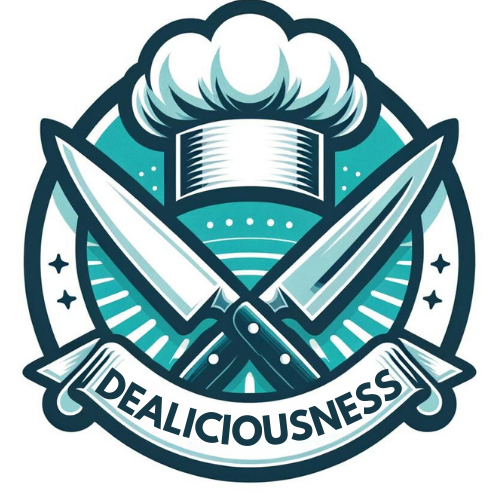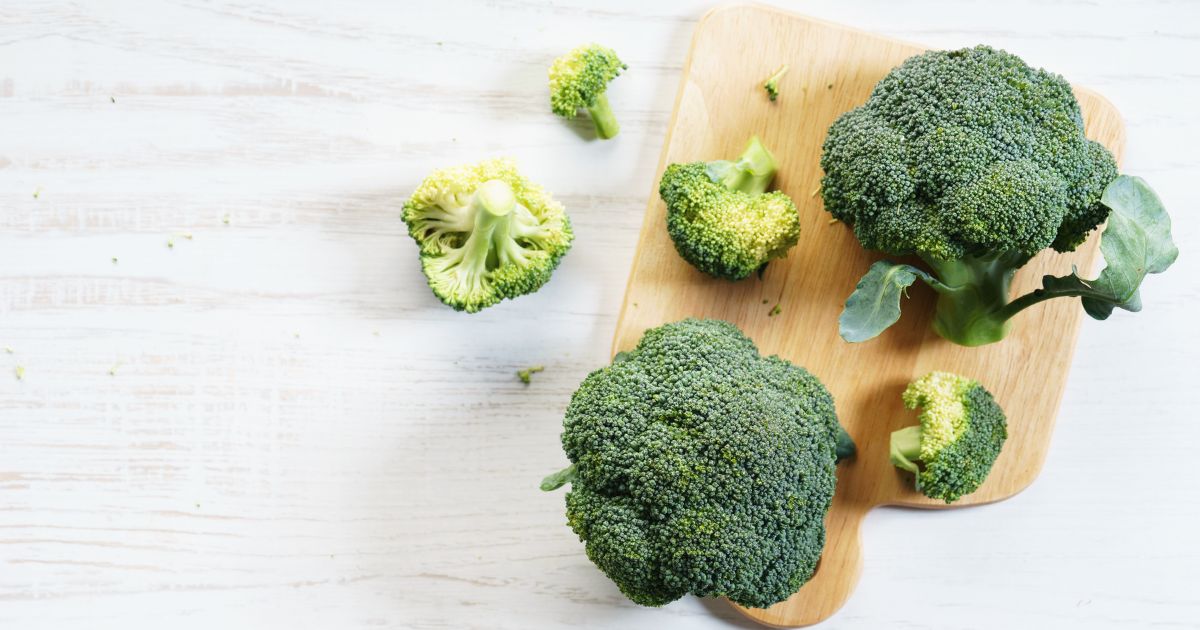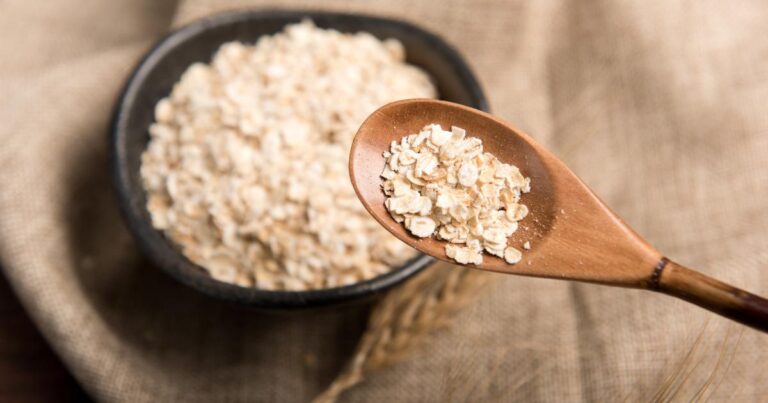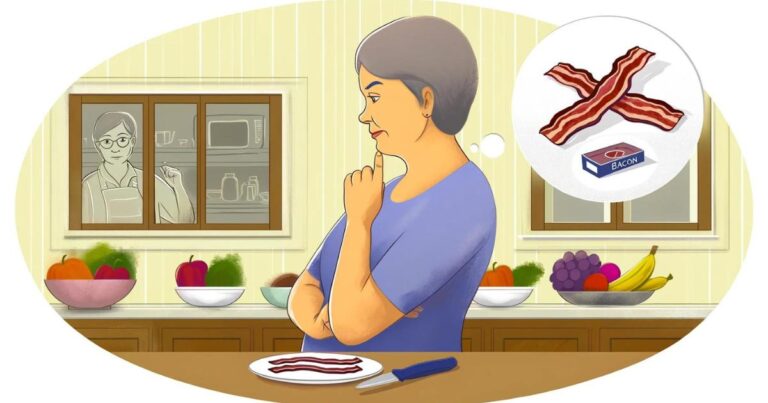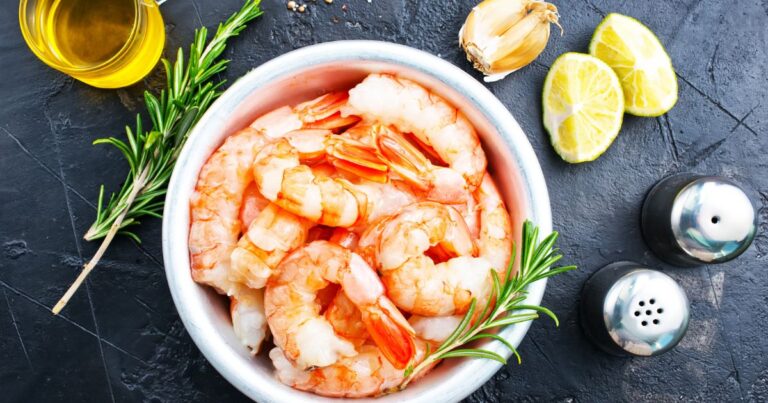Why Do I Want To Eat Broccoli Everyday? Meanings For Craving Healthy Foods
Have you ever asked, “Why am I craving broccoli?” It might seem a bit unusual at first – craving something famously known for being part of a healthy, balanced diet rather than an indulgent eating habit. We’re going to uncover the top seven reasons behind these green cravings. From its powerhouse of certain nutrients to its surprising role in modern culinary trends, we’ll explore how broccoli, often just a side dish, becomes the main event in our cravings.
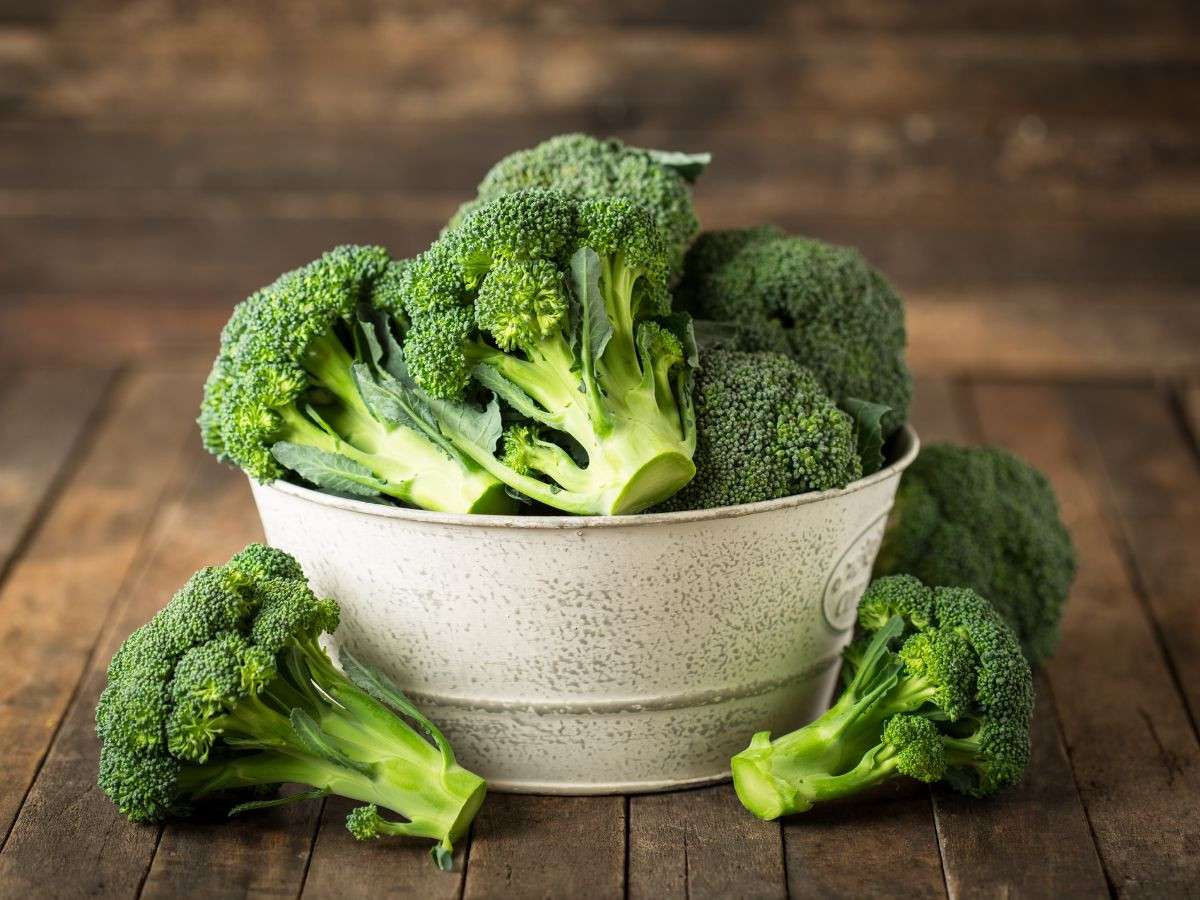
As a Kid admitting you like broccoli is just as embarrassing, if not lower on the social ladder, than having cooties.
As a professional chef, I’ve seen a lot of food trends, but the one that always gets eyebrows raised is when people admit they’re craving broccoli.
Yep, broccoli cravings – that little green veggie many of us remember pushing around our plates as kids.
It’s not a craving for Mustard or a bar of chocolate, a slice of cheesy pizza, or even a bag of Salt and Vinegar chips. It’s broccoli, and people are actually craving it!
Raw broccoli contains essential nutrients that pregnant women can benefit from and prevent nutritional deficiencies during healthy pregnancy.
Why am I Craving Broccoli? Why are people, out of all things, craving this particular highly nutritious vegetable?
I’m going to share the top seven reasons people might find themselves longing for a bit of eating broccoli.
Table of Contents
Why Am I Craving Broccoli?
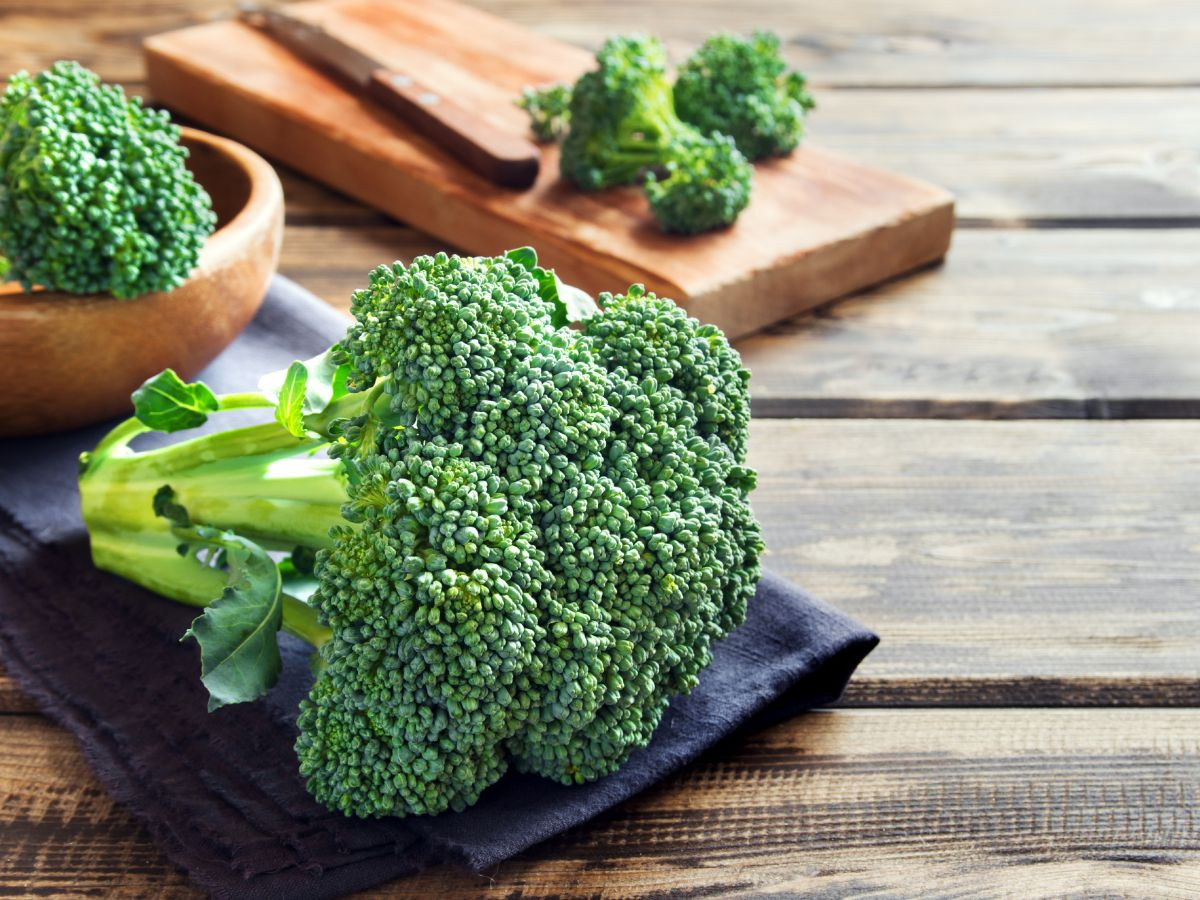
I’m going to break down and deliver everything from its nutritional health benefits to its surprising ability to win over taste buds in the kitchen.
So, let’s start this thing and find out why broccoli isn’t just a health food chock full of vitamins and minerals but a delicious one that people actually want to eat!
Nutritional Value of Broccoli
Broccoli is a true superstar when it comes to nutrition.
The benefits of craving broccoli are sneaky, but you would be surprised at how much of your daily value of essential vitamins enters your body when you eat broccoli.
Here’s why broccoli is a nutrient that often finds its way into our cravings:
Rich in Vitamins and Minerals:
Broccoli is loaded with vitamin C and K and is a good folate, potassium, and fiber source. Vitamin C can boost immunity and skin health, while Vitamin K is essential for bone health and healing wounds
High in Fiber:
The high fiber content in broccoli is excellent for digestive health. Like other fiber-rich foods, it keeps you full longer, which is great for weight management.
Contains Powerful Antioxidants:
Broccoli is rich in compounds like sulforaphane, known for its cancer-fighting properties. These antioxidants help combat free radicals in the body and can also help to reduce oxidative stress and inflammation as you consume broccoli.
Low in Calories:
This is big for those watching their weight. You can eat a decent amount of broccoli without consuming too many calories, making it an excellent option for a healthy diet.
Your body might be signaling its need for the nutrients found in broccoli. Your one-cup serving of broccoli and lemon isn’t just your mid-afternoon snack; it’s a nutritional powerhouse that deserves its spot in the limelight.
Psychological Factors
Now, let’s talk about the mind’s role in our food choices because, let’s face it, our broccoli cravings aren’t always about physical needs.
Psychological factors explain why we crave certain foods, like broccoli cravings.
Emotional Connections: Food is not just fuel; it’s also tied to emotions and memories. Maybe your craving for broccoli stems from a positive memory, like a comforting family meal or a particularly satisfying dish at a favorite restaurant.
Comfort Food Factor: Believe it or not, broccoli can be a comfort food. When prepared in a way you love – maybe roasted with a bit of garlic and Parmesan or tossed with leafy greens in a flavorful stir-fry –it can be just as comforting as a bowl of mac and cheese.
Habit and Routine: If you’re used to having broccoli regularly, your body might start to expect it. This habitual eating can turn into cravings, especially if you miss your usual broccoli fix.
Mood Enhancement: Some studies suggest that certain foods can affect our mood and Brain Health. Broccoli, with its high nutrient content, might subtly boost our mood, making us crave it when we need a pick-me-up.
Food is as much about the experience as taste and nutrition. The next time you’re craving broccoli, it might be worth considering what psychological factors could contribute to it.
Taste Preferences and Changes
One of the most intriguing aspects of our relationship with food is how our taste preferences evolve.
This evolution can play a significant role in why we crave certain foods, like broccoli, out of the blue. Here’s a look at how this can happen:
Changing Palates: Our taste buds can change as we age, and foods we once disliked can become appealing. If you were not a fan of broccoli as a kid but find yourself craving it now, it could be your taste buds have matured and developed a liking for more complex flavors.
Exposure to New Flavors: Being a chef, I’ve seen how exposing people to new ways of preparing familiar food can change their perception of it. Maybe you’ve recently tried broccoli in a new dish or cooking style that transformed it from bland to brilliant in your taste hierarchy.
Nutritional Needs Influence Taste: Our bodies are brilliant. Sometimes, a change in taste preferences is the body’s way of directing us towards foods that fulfill our nutritional needs. If you need broccoli’s nutrients, you might start finding it tastier than before.
Pregnancy and Taste Change: Pregnancy can bring about wild changes in taste preferences for expectant folks. If you’re craving broccoli during pregnancy, it might signal your body for the essential nutrients it offers, like folic acid and fiber.
A newfound craving for broccoli could signify your palate becoming more sophisticated, your body seeking certain nutrients or a reflection of a new culinary experience that left a positive mark.
The Role of Diet and Lifestyle
Our diet and lifestyle choices significantly impact the types of food we crave, including our green friend, broccoli. Here’s what might be going on behind the scenes:
Health-Conscious Choices: In today’s world, where there’s a growing focus on healthy eating, people are more inclined to crave nutritious foods. If you prioritize a healthy diet, your body and mind might naturally lean towards craving nutrient-rich foods like broccoli.
Influence of Plant-Based Diets: With the rise of vegetarian and vegan lifestyles, vegetables have become the plate stars. If you follow a plant-based diet, you’ll likely crave vegetables more, and versatile and nutritious broccoli is often a top choice.
Physical Activity and Nutrient Requirements: If you’re physically active, your body requires more nutrients for energy and recovery. Broccoli, rich in vitamins, minerals, and antioxidants, might become a go-to craving as your body seeks these essential nutrients.
Culinary Adventures: If you love to explore different cuisines and experiment with cooking, you might crave ingredients like broccoli that offer versatility. The more you cook with it, the more your palate learns to love it.
Your diet and lifestyle are like a mirror reflecting your food cravings. The healthier your lifestyle, the more likely you are to crave foods that support it, like a broccoli craving.
And if you’re adventurous with your culinary choices, that can also steer your cravings towards more diverse and nutritious food options.
Cultural and Social Influences
As a chef, I’ve always been fascinated by how our cultural background and social environment shape our food preferences, including our cravings for certain vegetables like broccoli.
Let’s explore how these influences play a role:
Cultural Cuisine Preferences:
Different cultures have unique ways of preparing and incorporating broccoli into their cuisine. If you’ve been exposed to cuisines that use broccoli creatively and deliciously, you’re more likely to develop a craving for it.
For instance, broccoli in Asian stir-fries or Italian pasta dishes can transform it from a mundane veggie to a crave-worthy ingredient.
Social Media and Food Trends:
In the age of social media, we’re constantly exposed to new food trends and healthy eating habits.
Seeing beautifully presented broccoli dishes on Instagram or Pinterest can pique your interest and create a desire to try them out, leading to cravings.
Influence of Family and Friends:
The people around us often influence our eating habits. If your family or friends enjoy cooking with broccoli or often choose dishes with broccoli when dining out, it’s likely to rub off on you, sparking similar cravings.
Health and Wellness Movements:
With a growing awareness of health and wellness, there’s been a surge in the popularity of nutrient-dense foods.
Broccoli, a poster child for healthful eating, often becomes a go-to vegetable for those looking to improve their diet.
Cultural and social factors are powerful influencers of our food choices. They can turn an ordinary vegetable like broccoli into a trendy and desirable food item.
It’s intriguing how our surroundings and the people we interact with can shape our food cravings in such significant ways.
Broccoli in Popular Diets and Health Trends
In recent years, craving broccoli has emerged as a celebrity in health and diet trends. As a chef, I’ve noticed how various diets and wellness movements have embraced this humble vegetable for a few reasons, and here’s why it’s likely influencing our cravings:
Keto and Low-Carb Diets: Broccoli is a favorite in low-carb and ketogenic diets. It’s low in carbs but high in fiber and nutrients, making it an ideal choice for those looking to reduce their carb intake without sacrificing nutrition. This popularity can lead to more people craving it as they adapt to these diets.
Detox and Clean Eating: Craving Broccoli is often touted for its detoxifying properties thanks to compounds like sulforaphane. Those who follow clean eating, avoid sugary foods, or follow detox diets may find themselves craving broccoli as their body begins to associate it with feeling cleansed and revitalized.
Plant-Based Diets: With the rise of vegan and vegetarian lifestyles, broccoli has become a go-to ingredient for its versatility and nutrient profile. People following these diets may crave broccoli, which can be a key component of satisfying, plant-based meals.
Fitness and Bodybuilding Communities: Craving Broccoli is a staple in the fitness world, prized for its high protein content relative to its calorie count. As more people engage in fitness and bodybuilding, cravings for broccoli can increase due to its association with muscle building and overall health.
The integration of broccoli into these popular diets and health trends has elevated its status from a simple side dish to a dietary superstar.
It’s not just about the health benefits; it’s about how broccoli fits into contemporary lifestyles and eating habits.
This alignment with current dietary movements could be why many crave this green veggie more than ever.
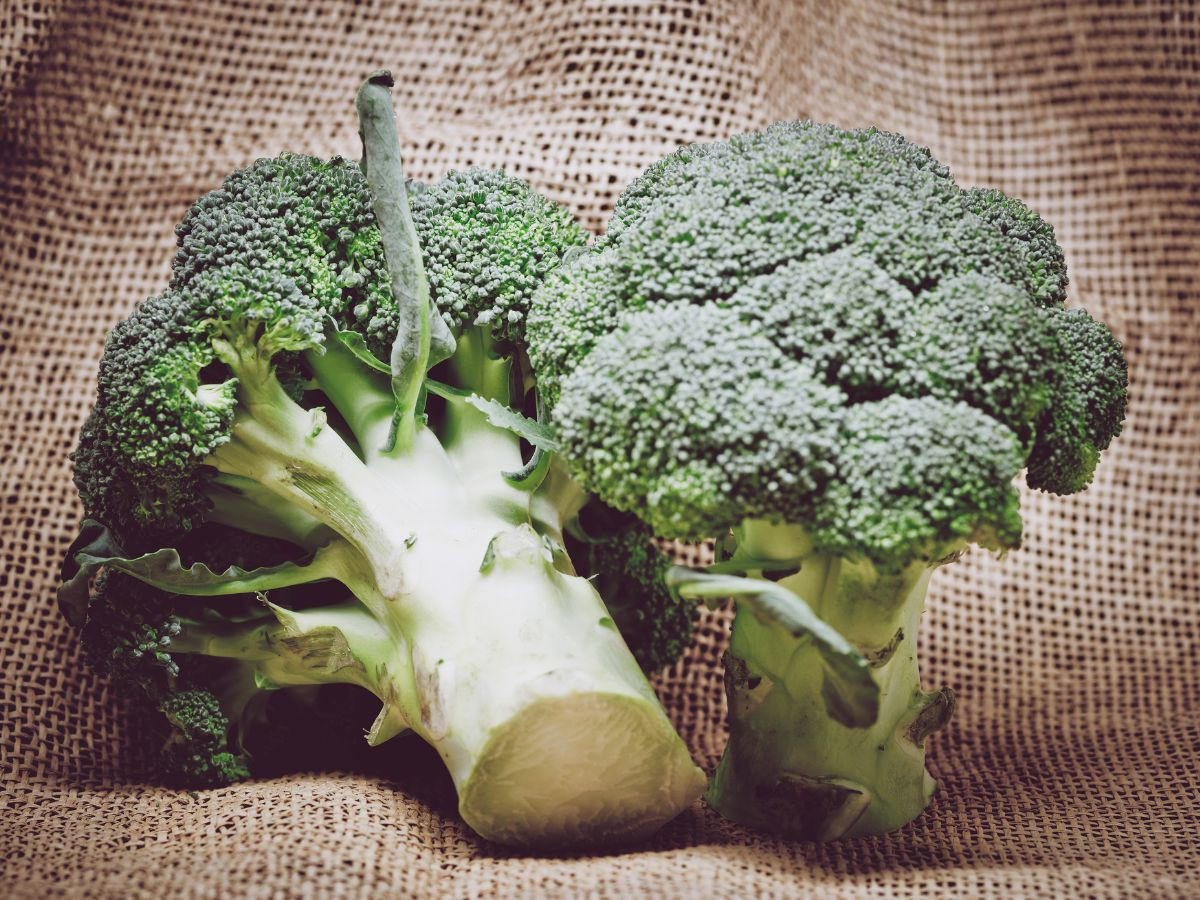
Conclusion
A fascinating blend of nutritional, psychological, and cultural factors influences our cravings for this green powerhouse.
From its rich nutritional profile and emotional comfort to its versatility in various diets and cuisines, broccoli is not just a side dish; it’s a star in its own right.
Reflecting on my experiences as a chef, I’ve seen how a simple vegetable can be transformed into countless delicious and nutritious dishes, winning over even the most skeptical eaters.
It’s a reminder that our food cravings, even for something as seemingly mundane as broccoli, can be a window into our bodies’ needs, emotional states, and the influences of the world around us.
Next time you find yourself craving a serving of broccoli, whether it’s steamed, roasted, or tossed in a salad, remember that it’s not just a craving—it’s a nod to your body’s health, your evolved taste preferences and perhaps even your connection to the broader culinary world.
So go ahead, indulge in that broccoli craving. Your body (and taste buds) will thank you for it!
FAQ and Additional Information
What does eating a lot of broccoli do for you?
Eating a lot of broccoli can have several positive effects on your health, thanks to its rich nutrient profile and beneficial compounds.
Here are some of the key benefits when you can’t stop craving broccoli:
Rich in Nutrients: Broccoli is high in vitamins C and K, and it also contains a good amount of folate, potassium, and fiber. Vitamin C is crucial for the immune system and skin health, and then you have Vitamin K, which is important for bone health and blood clotting.
Antioxidant Properties: It contains antioxidants like sulforaphane, which can help reduce oxidative stress and lower the risk of chronic diseases. These antioxidants also play a role in reducing inflammation in the body.
Digestive Health: The high fiber content in broccoli promotes good digestive health. It helps in regular bowel movements and supports a healthy gut microbiome.
Cancer Prevention: Some studies have suggested that the compounds in broccoli, especially sulforaphane, may have anti-cancer properties, potentially reducing the risk of certain types of cancer.
Heart Health: Regular consumption of broccoli can contribute to heart health. The antioxidants and fiber in broccoli help reduce cholesterol levels and maintain healthy blood vessels.
Eye Health: Broccoli contains specific carotenoids like lutein and zeaxanthin, which are beneficial for eye health and may reduce the risk of age-related eye diseases.
Weight Management: Due to its low-calorie and high-fiber nature, broccoli can be a great addition to a weight management diet. It helps keep you full for extended periods, reducing overall calorie intake.
Bone Health: With its good calcium and Vitamin K content, broccoli supports bone health and may reduce the risk of osteoporosis.
Skin Health: The vitamin C and antioxidants in broccoli can contribute to healthier skin, protecting against skin damage and contributing to skin repair.
However, it’s important to note that while broccoli is exceptionally healthy, balance is key in any vegan diet.
Overconsumption of any food, yes, you can overeat broccoli, which might lead to nutritional imbalances or digestive issues for some individuals.
As always, it’s best to consume various citrus fruits and vegetables to ensure a healthy life and a well-rounded intake of nutrients.
What could craving broccoli mean?
Nutritional Deficiency:
Sometimes, our body craves certain foods because of a nutrient or an iron deficiency.
Broccoli contains nutrients like vitamin C and K, fiber, calcium, iron and essential amino acids. If your body lacks these, you might find yourself craving broccoli.
Health and Diet Consciousness:
If you focus on eating healthier or following a specific diet plan, you might crave broccoli because you know it’s nutritious.
This can be especially true if you’re following diets emphasizing vegetable intake, like plant-based or clean-eating diets.
Change in Taste Preferences:
Our taste preferences can change as we age or undergo different life stages (such as pregnancy).
If you’re experiencing a shift in your palate, you might crave foods you didn’t enjoy before, like broccoli.
Psychological Factors:
Broccoli Cravings can be psychological or emotional. Suppose you associate craving broccoli with positive experiences or emotions (like a comforting meal or a sense of well-being after eating healthy foods).
In that case, you might crave it for emotional eating reasons.
Gut Health:
Broccoli is high in fiber, which is beneficial for gut health. If your body needs more fiber or is experiencing digestive issues, you might crave high-fiber foods like broccoli.
Habit and Routine:
If you regularly include eating broccoli in your meals, your body might simply be accustomed to it, leading to cravings when you haven’t had it in a while.?
Sensory Specific Satiety:
This is a phenomenon where your body craves variety in textures and flavors.
Since broccoli has a distinct taste and texture from salty foods, especially when cooked differently (steamed, roasted, stir-fried), you might crave it as a change from other foods.
